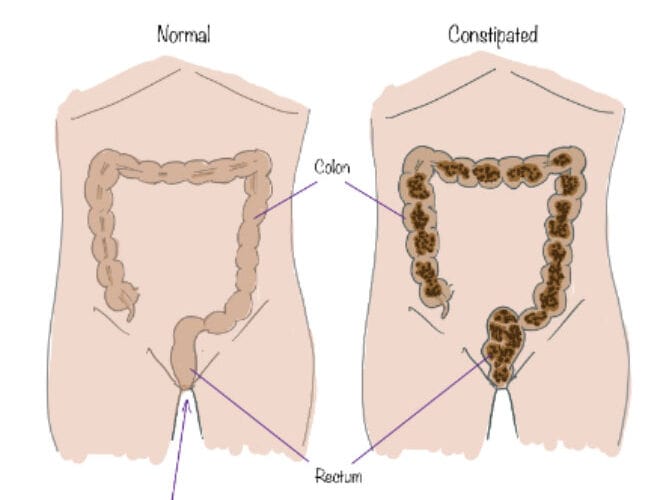Study: 39% of chronic constipation in children caused by dairy!

Brief intro and summary
Chronic constipation is a common condition that affects millions of people worldwide. Dr. Cornelius W. Van Niel, a gastroenterologist and expert in the field, has written extensively on the topic of chronic constipation.
According to Dr. Van Niel, chronic constipation can have a significant impact on a person’s quality of life. It can cause discomfort, pain, and embarrassment, as well as lead to other health issues such as hemorrhoids, anal fissures, and rectal prolapse. Chronic constipation can also be a sign of an underlying medical condition, such as irritable bowel syndrome or colorectal cancer, which is why it is important to seek medical attention if symptoms persist.
After my first two blogs about dairy, I was going to give it a rest and talk about reactions to gluten. But then, an email from Journal Watch, a doctor’s service from the publishers of New England Journal of Medicine showed up in my inbox. It was about chronic constipation in children, and its relationship to dairy. It reported a study from Spain with astonishing results.
All of the children in the study had chronic constipation. When dairy was removed from their diets, the constipation stopped for 39% (yes, thirty-nine percent) of them. The study was designed so that dairy was reintroduced–and when the children consumed it again, their constipation came back. And when it was removed again, the constipation went away again. So for today’s blog, I am going to let Journal Watch have the floor, and present their summary of the study.
Here is the summary:
“Chronic Constipation? Hold the Milk!
One third of children with chronic constipation improved after cow’s milk was removed from their diet.
Cow’s milk has been linked with chronic constipation in children, and an immune response to cow’s-milk protein has been proposed as a possible mechanism. Investigators studied response to removal of cow’s milk in 69 children (age range, 6 months to 14 years) with chronic constipation who were referred to a pediatric gastroenterology clinic in Spain. The trial involved four phases: Clinical factors and laboratory immunologic results were recorded for 1 week during phase I (run-in), cow’s milk and cow’s-milk formula were replaced with rice milk (for children >2 years) or hydrolyzed cow’s-milk protein formula for 3 weeks during phase II, cow’s milk was reintroduced for 3 weeks during phase III, and cow’s milk was removed again for 3 weeks during phase IV. No other dietary changes were made.
Twenty-seven children (39%) were considered responders; their constipation resolved within 1 to 5 days during phase II (removal of cow’s milk), relapsed within 2 to 5 days during phase III (reintroduction), and resolved again during phase IV (removal). Thirty-four children (49%) were considered nonresponders; they did not improve during phase II. The remaining eight children had slower resolution of constipation during phase II and did not relapse during phase III (reintroduction). Responders and nonresponders did not differ in constipation history or symptoms, physical exam findings, dairy or fiber intake, or immunologic lab results. The mean number of stools per week increased in responders from 2.9 to 7.7 and did not change in nonresponders (mean, 2.7 stools per week before and after removal).
Comment: Removal of cow’s milk resolved constipation in a substantial subset of children, and, although this was not a randomized blinded trial, the finding that reintroduction of cow’s milk led to relapse is compelling. The results do not support an obvious immune mechanism for chronic constipation related to cow’s-milk protein, but the authors note that the timing of resolution and relapse might suggest a delayed allergic response. Although no clinical factors helped to predict which children would respond to removal of cow’s milk, this relatively simple intervention seems worth trying in children with chronic constipation.
— Cornelius W. Van Niel, MD
Published in Journal Watch Pediatrics and Adolescent Medicine July 21, 2010″
Dr. Van Niel stresses that treatment for chronic constipation should be tailored to each individual’s specific needs. This may include lifestyle changes such as increasing fiber and water intake, as well as exercise and relaxation techniques. In some cases, medication or surgery may be necessary.
Overall, Dr. Van Niel emphasizes the importance of seeking medical attention for chronic constipation and working with a healthcare provider to develop a treatment plan. With the right care and management, chronic constipation can be effectively treated, and individuals can regain their quality of life.







